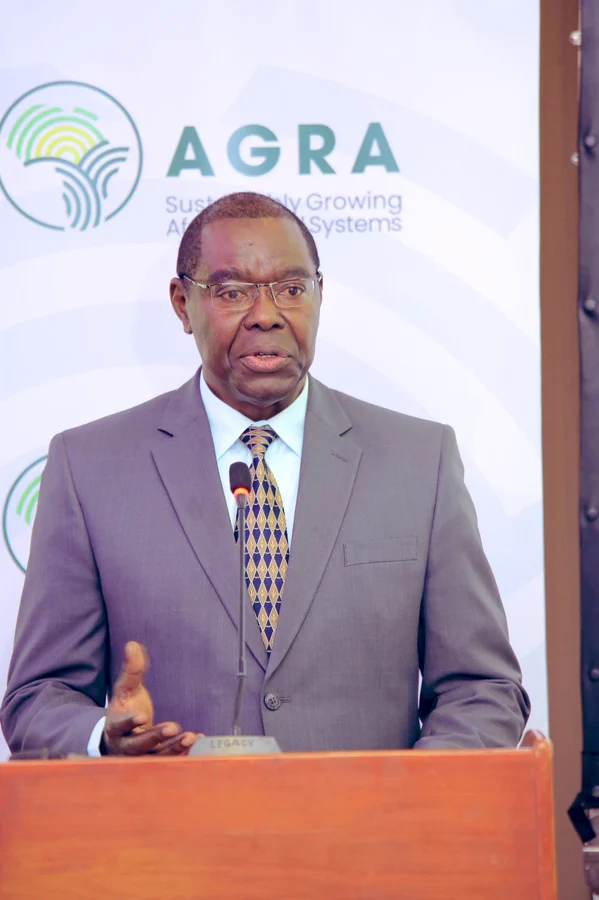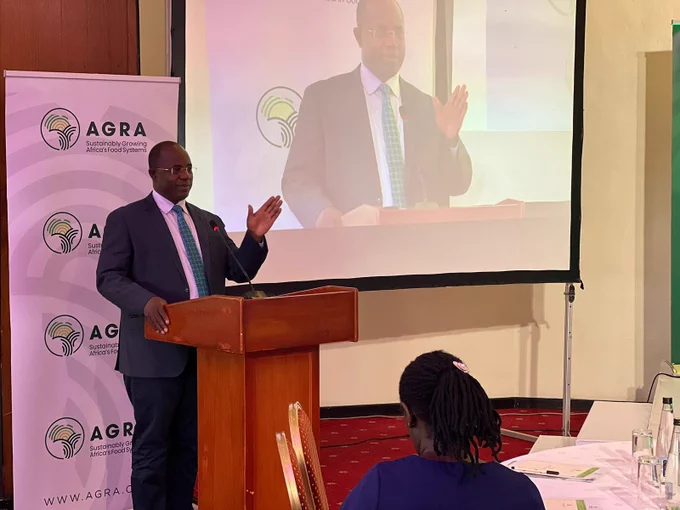The Alliance for a Green Revolution in Africa (AGRA) has launched a new five-year strategy to boost the competitiveness of Uganda’s agri-food systems in line with the country’s development blueprint, Vision 2040.
AGRA is an organisation that seeks to transform African agriculture from a subsistence model to strong businesses that improve the livelihoods of the continent’s farming households.
The new strategy builds on AGRA’s work in the country, mainly focusing on increasing smallholder farmers’ income, food security and nutrition, thus driving productivity.
By building inclusive and competitive markets, the strategy will ensure increased volumes and value of traded agricultural commodities, and employment opportunities for women and youth.
Speaking during an event to launch the strategy at Serena Hotel in Kampala on Thursday, AGRA’s Deputy Vice President for PID, Dr George Birigwa, said: “Agriculture is the backbone of Uganda’s economy and has always been a critical pillar of its economic development. The country has taken another step towards a sustainable agricultural future with its well-articulated framework. We are committed to working with the government and the private sector to build a resilient food system, ensuring that the benefits of agricultural transformation reach all Ugandans.”

The strategy prioritises increasing smallholder farmers’ incomes and food security and managing climate and market risks. Over the next five years, AGRA will be working towards strengthening financial and non-financial services for SMEs involved in staple crops to make them sustainable.
This will be done through investments in policy and advocacy work, matching grant support for business improvement and expansion, and linking the businesses with new technology and funding mechanisms.
“Transforming our food systems requires taking broad measures and moving away from the business-as-usual approach. It is possible for Africa to feed itself, and for Uganda to be the food basket that can feed the region,” Birigwa added.
The strategy is aligned with the Government of Uganda’s third Agriculture Sector Strategic Plan (2020/21–2024/25) that aims to transform Uganda’s agricultural sector from subsistence farming to commercial agriculture.
This is through the identification of priority commodities, which include coffee, dairy, fish, livestock, and a range of staple crops.
Uganda’s Minister of State for Agriculture, Hon. Bwino Fred Kyakulaga, appreciated the invaluable contribution that AGRA has made to the country.
“I am optimistic that together we can enhance food security in Uganda and address our country’s strategic decision to stop relying on imported seed,” he noted.

AGRA has invested over $62.8 million in supporting SMEs, issued $3.6 million worth of grants to boost the capacities of rice farmers and SMEs and spent $0.24 million to reach 25,000 farmers directly to promote fertiliser use through partnerships.
“It gives me a lot of pleasure when I learn that AGRA 3.0 has the market as the entry point. This is further evidence of the relationship between AGRA and the Ugandan government’s planning framework. We are aligned,” noted Kyakulaga.
When about reports of Ugandan produce being rejected in foreign markets, Kyakulaga said quality is important and so is food safety.
According to him, food products should be without chemicals or dangerous toxins and that the government is training farmers on those parameters.
“Some Ugandan agricultural products have been intercepted after being found wanting. The government has come up strongly to address that challenge. We have a crop inspection department to deal with that challenge,” he told journalists on the sidelines of the event.
The agricultural sector contributes 24% of Uganda’s GDP while employing about 72% of the working population. Approximately 90% of the farmers operate on a small scale and these comprise about 4.85 million households. Almost 89% of the population in Uganda is food secure with normal access to food from its production and in the market.
For its strategy 2023-2027, AGRA will continue to support an inclusive agriculture and food system transformation in Uganda by building inclusive and competitive markets through value addition and trade.









